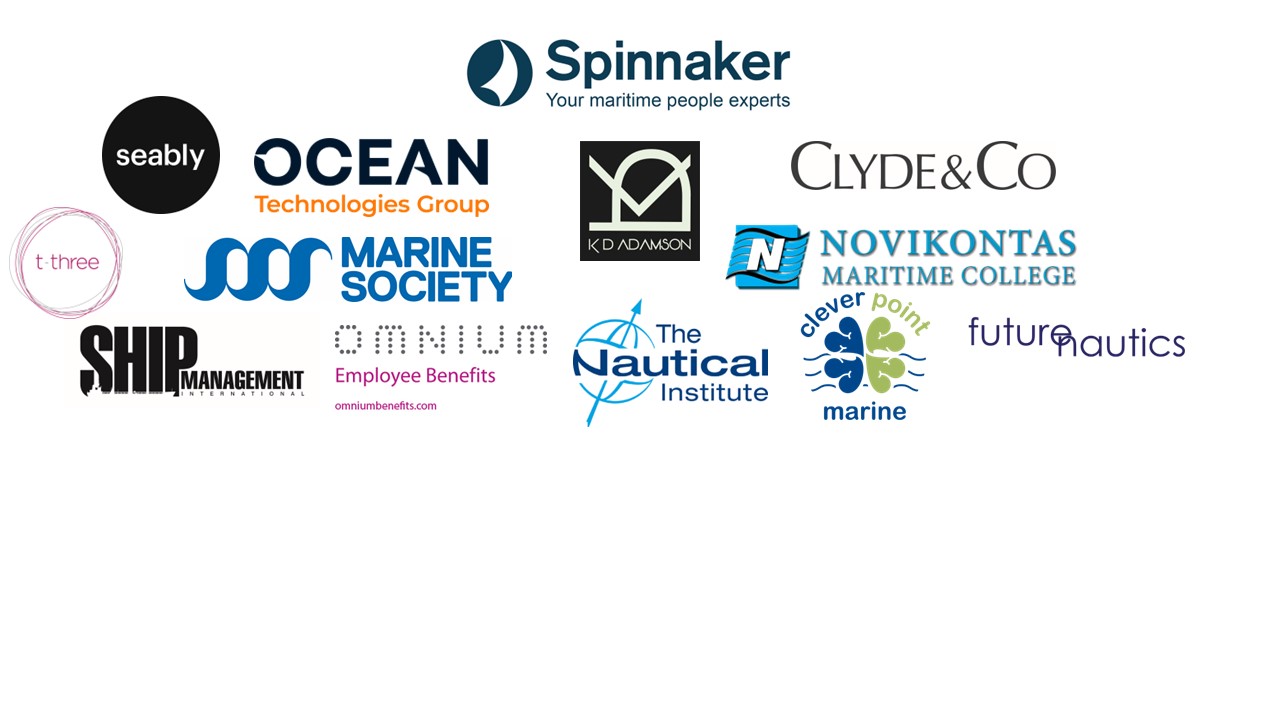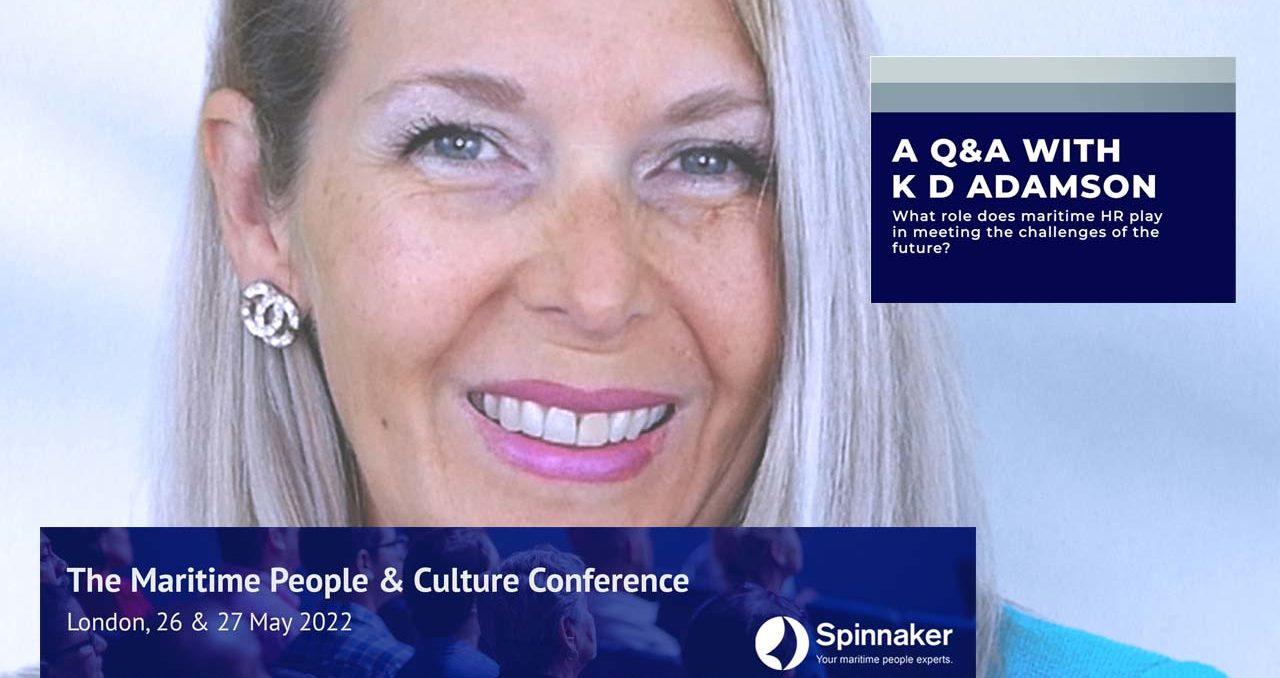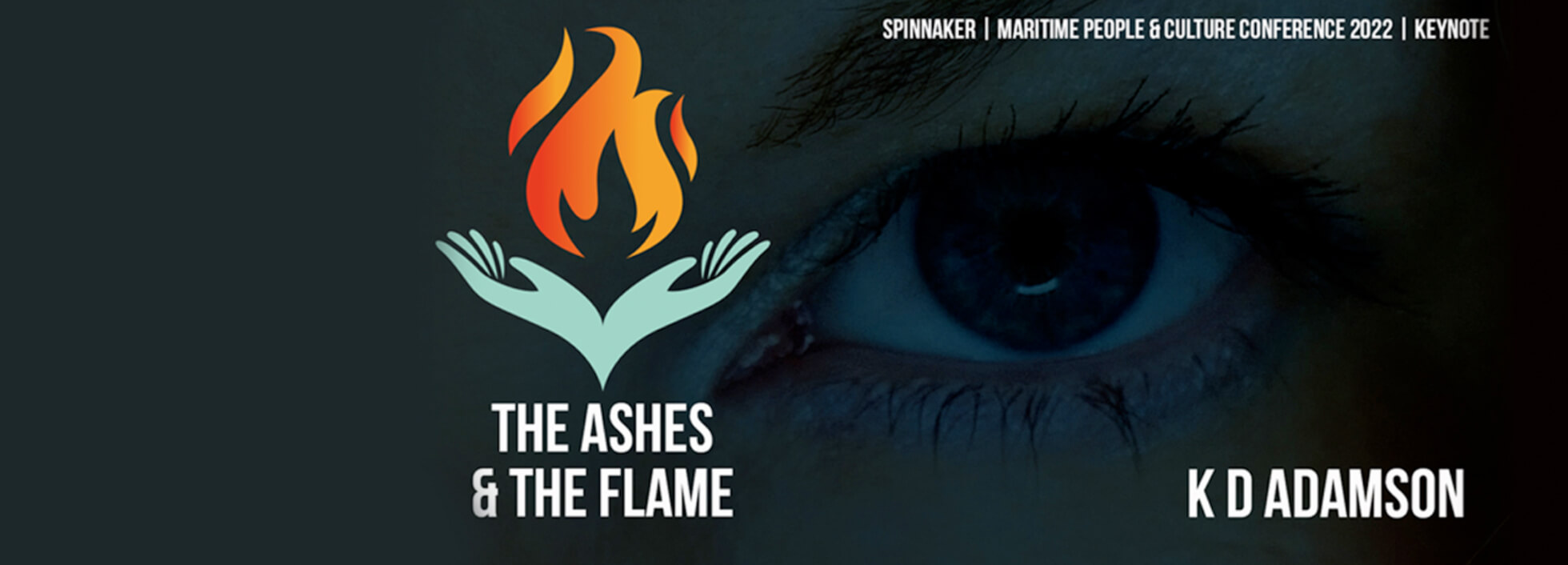A big thank you to the sponsors and supporters at this year’s Spinnaker Maritime People & Culture Conference.
We are delighted to have Ocean Technologies Group sponsoring the lanyards at the event and these will be available for all delegates on the day.
Clyde & Co will be returning for the fifth year as sponsors of the lunch break on both days.
You will also find Clyde & Co in our exhibition area alongside CleverPoint Marine, Novikontas Maritime College, Omnium Employee Benefits, Marine Society and Seably.
Read on to find out more about our sponsors and exhibitors.
CleverPoint Marine is a tech-enabled company, pioneering new generation neurotechnology in virtual reality to manage employee performance and wellbeing. Our solution is an innovative device, developed and adapted for the maritime industry as a psychometric assessment and training tool, for supporting the cognitive and psycho-physiological abilities of an employee. www.cpmarine.pro
Novikontas Maritime College is a world-class Maritime and Offshore Training and Education institution. Our experienced maritime industry staff delivers a broad range of courses and professional education programs for shore-based and onboard positions.
Clyde & Co’s employment team are recognised leaders in the delivery of HR legal services. Our experienced practices in the UK, the Middle East and across Asia-Pacific have a long track record of advising both local and international businesses on employment issues, employee benefits, pensions, immigration, partnership, and trade union issues. From hiring, to managing change programmes, and resolving disputes, the combination of our experienced and sizeable international team and network of international offices means that we provide clients with relevant and tailored employment advice when and where it is needed.
Ocean Technologies Group provides maritime professionals with digital learning, assessment, maritime HR and fleet management solutions. It is built on the world recognised e-learning providers Seagull Maritime and Videotel and has been further strengthened by the COEX, Compas, Marlins, MTS and Tero Marine brands. Dedicated to realising the potential of every seafarer and every ship, Ocean Technologies Group help make the industry safer, stronger and able to excel.
The Marine Society & Sea Cadets aim to be the first in learning and professional development for the maritime community and do this through their many partnerships. These enable them to offer tailored learning programmes that support learning and professional development at all levels, right through to postgraduate. They are also able to deliver distance-learning programmes that are perfect for those who are unable to learn through the more traditional methods. Meanwhile their crew libraries and bookshop support seafarers through their learning and also offer a welcome escape from the pressures of life at sea.
Omnium are an independent benefits business and offer advice to clients of all sizes. They provide a full range of employee benefits and have over fifty years’ experience in the field. Their primary aim is to inform, educate and advise employers and employees on the real value of the benefits their organisation offers. They offer unbiased, unrestricted and wholly independent financial advice.
Seably was founded together with the Swedish Shipping Association in 2017 out of strong demand from the shipping cluster for better ways for seafarers to conduct their mandatory training.
They firmly believe that training is an essential component of a healthy and safe maritime industry. They believe that training should be a collaborative and diverse process with many contributors – training should be created by the many, not by the few.
You can meet our sponsors and exhibitors at the Spinnaker Maritime People & Culture Conference on the 26th & 27th May








